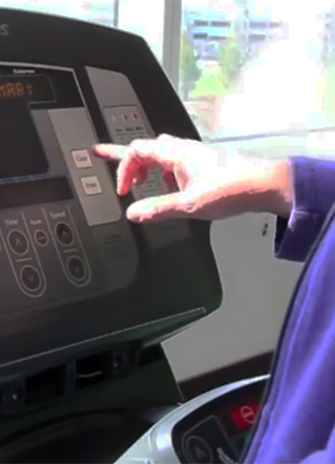More than half of family doctors do not receive discharge summaries of their patients who undergo cardiac rehabilitation, which may result in ineffective post-discharge care, a York University study reveals.
Heart disease is one of the leading causes of disability in the world, and cardiac rehabilitation programs have been proven to keep patients healthier longer through comprehensive risk factor identification,  behaviour modification, structured exercise, and patient and family education.
behaviour modification, structured exercise, and patient and family education.
Cardiac rehabilitation lab
But, patients need further support to sustain and manage their cardiac risk after a typical five-month long cardiac rehab program, including support from their family doctors. Only 42 per cent of the 577 participating primary care providers received discharge summaries from cardiac rehab programs, yet all of the doctors expressed a desire to receive this information to effectively manage the care of their patients.
Effective communication between cardiac rehabilitation professionals and family physicians is important in care coordination and continuity, which can result in better health for patients. But according to the Cardiac Rehab Discharge Continuity study by  York University researchers, there is a need for better communication between the two provider groups.
York University researchers, there is a need for better communication between the two provider groups.
Sherry Grace
“It seemed that the summaries were going to the cardiac specialists, who would not be meeting with patients very often after rehab,” says principal investigator Sherry Grace, a professor in York’s Faculty of Health who also belongs to the University Health Network. “We really need to do a better job at patient hand-offs, and include patients in the process.”
A typical discharge summary contains an exercise plan, information on medications, comparison of intake and discharge risk factors, like cholesterol and blood pressure, for use in patient care. It also identifies  areas for long-term risk factor management. When family doctors did receive a summary, they were very satisfied with it, according to the study published online Jan. 8 in the American Heart Association journal, Circulation: Cardiovascular Quality and Outcomes.
areas for long-term risk factor management. When family doctors did receive a summary, they were very satisfied with it, according to the study published online Jan. 8 in the American Heart Association journal, Circulation: Cardiovascular Quality and Outcomes.
The study – authored by York University graduate student Peter A. Polyzotis – was conducted by tracking the summaries from eight Ontario cardiac rehabilitation programs sent to participating family doctors, with the consent of their respective patients.


